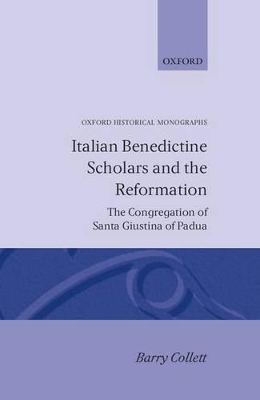Oxford Historical Monographs
1 total work
European history from 1480 to 1570 was a period of turbulent change, political upheaval, profound moral questioning, and urgent philosophical speculation. This book explores the intriguing role of the almost-forgotten Congregation of Benedictine monks of Italy and southern France in the events of these tumultuous years. From archival and published records, the picture emerges of a closely-knit order of humanist scholars whose religious and philosophical studies later put them in a unique position to understand the Reformers. The book also casts light on the monks' fascinating reaction to the Reformation, as they poured out a stream of academic books, tracts, sermons, and poems in their attempt to heal the deepening rift between Rome and the Reformers. Critized and misunderstood by all sides, the Congregation gradually fell into decline until it was finally suppressed under the Napoleanic invasions.
